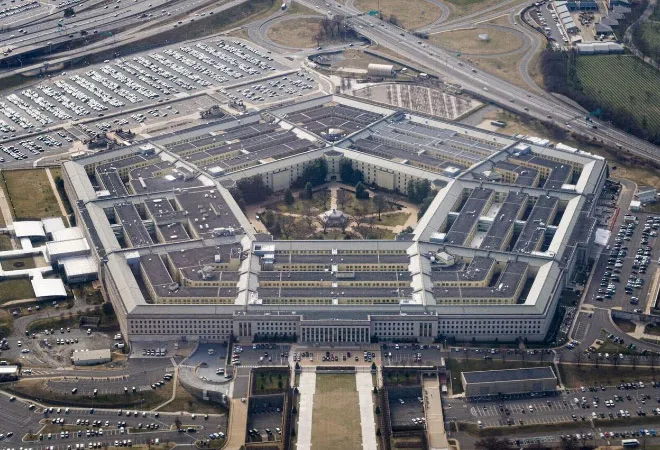
From its inception, the conflict in Ukraine has been, and is being, fought as intensely in the information domain as on the ground. The Pentagon leaks is the latest set of evidence to corroborate this. If anything, these leaks have made the chances of ending the conflict even more remote. While the leaks themselves
reveal US intelligence on how Russia’s slow-moving offensive in eastern Ukraine’s Donbas region “is likely heading toward a stalemate,” both sides are cautious in not taking the leaks at face value.
The current leaks have reminiscence in the
2016 leaks or the
revelations of Edward Snowden, which were seen as one of the most damaging leaks in the history of the US, with national security and intelligence secrets spilled into the public domain. The current Pentagon leaks are even
more damaging with far-reaching impact on the US’s relations with key allies worldwide.
The Pentagon has launched an investigation into the matter to determine the extent of the damage caused by the leak.
The leaks of classified documents from the Pentagon has been attributed to a
21-year-old National Guard airman named Jack Teixeira. According to interviews and a Federal Bureau of Investigation (FBI) charging document, Teixeira used government secrets to impress fellow gamers on the Discord app server frequented by the Gen Zs. Hundreds of classified documents were leaked through this server before the breach was discovered. These documents then
appeared on Twitter and Telegram, which are widely used in Russia. This incident highlights the potential risks from insider threats—individuals with access to sensitive or classified information inadvertently or deliberately disclosing it. The Pentagon has launched an investigation into the matter to determine the extent of the damage caused by the leak.
Repercussions for Russia-Ukraine Crisis
The
revelations coming out of the leaks point to a possibility of continued war—well into 2024—as no side is willing to negotiate. On the face of it, the leaks are damaging to the US’s international image and to the Ukrainian political, strategic, and tactical positions; it also signals a necessity to get back to the drawing board on some of its military operations vis-à-vis Russia. For Russia, its
lack of activities in response to the leaks suggests that Moscow is cautious in seeing the revelations as an advantage, as the leaks point to weakness in Ukrainian preparations and readiness as well as a moment to militarily build advantages over Ukraine in the latter’s perceived moment of weakness. Deep down, these revelations could prolong the war in Ukraine with neither side taking the leaks at face value, yet both are scrambling to close the information vents—human and technical.
The US military may have found partial refuge in the position that the leaked documents may have possibly been tampered with, as they are lacking in nuance and the details of Ukrainian strategy, and overestimate the number of casualties—all pointing to a possible disinformation attempt by Russia. However, in parts at least, the documents are quite telling of the Ukrainian position. For instance, they have pointed to a
high rate of use of US-supplied High Mobility Artillery Rocket Systems (HIMARS) by the Ukrainian military, underscoring a broader mismatch between demand and supply before the much anticipated Ukrainian Spring offensive. Furthermore, the leaks have pointed to rapidly depleting Ukrainian air defence capabilities and a potential loss in Bakhmut due to Russian advances. The latter seems to be
unravelling as predicted in the leaks.
The US military may have found partial refuge in the position that the leaked documents may have possibly been tampered with, as they are lacking in nuance and the details of Ukrainian strategy, and overestimate the number of casualties—all pointing to a possible disinformation attempt by Russia.
However, one of the most damaging aspects of the leaks has been the revelations regarding the US snooping into the affairs of Ukraine. It reflects poorly on the comfort and trust between Ukraine and the US in the ongoing war with Russia. In the initial stages of the conflict, Ukrainian officials had been
reluctant to share intelligence with the US for fear of leaks—concerns allayed by the US, which convinced Ukraine that US intelligence capabilities remain, by far, the most reliable option for them to understand and predict what Russia may do and how they might plan their military campaign.
Implications for the US’ Security Alliances
Beyond the Russia-Ukraine war, the leaks have left the US with a lot of damage control work with its allies, partners, and friends as they have once again been left fuming at the extent of their surveillance by the US. For instance, the leaked documents reveal a classified report, based on signals intelligence, revealing
concerns amongst South Korean government officials that Seoul’s artillery shells supplied to the US could be diverted to Ukraine. Likewise, another signals intelligence report disclosed that Israeli intelligence officials had
encouraged the staff of the country’s foreign intelligence service Mossad and Israeli citizens to participate in anti-government protests against proposed judicial reforms.
Both South Korea and Israel are Major Non-NATO Allies (MNNA) of the US. South Korea has downplayed the reports of spying while Israel has denied the claims made by the leaked documents. Nevertheless, such leaks are particularly damaging from the standpoint of the Biden administration’s efforts to rework its alliances in the Pacific theatre and muster support for the Ukraine war effort.
A new counterintelligence era
The nature of the current leaks sets it apart from the earlier ones, as, unlike earlier leaks, this one did not come through a whistle-blower but via unorthodox means—the online gaming underworld. These leaks also reveal the double-edged nature of the interfaces between technology and the military. As part of its internal processes of adaptation, the US military itself has been flirting with the dark net and online gaming domains to spot Gen Z recruits. Discord, the popular online chat platform, where the leaked documents were first found, has an active
17,000-member chat room where the US military fiddles with testing new recruitment potential for an “
Army of tomorrow”. This is part of the Army Recruiting Command’s
e-sports programme to bring together the Army and the American public by leveraging their common interest in gaming. In a sign of premonition, the US Special Operations Command had cautioned its members against a cavalier attitude while using the Discord app in a specific
detailed digital identity protection toolkit that was released in March 2023.
The leaked documents reveal a classified report, based on signals intelligence, revealing concerns amongst South Korean government officials that Seoul’s artillery shells supplied to the US could be diverted to Ukraine.
The Pentagon leaks are an anti-climax when compared to a typical online hack, which is usually rapid, targeted, and viral. There are two debates that could come out of these latest leaks and could impact how a new counterintelligence era in the US is heralded. The first refers to the age-old question of how much to reveal to the public and ropes in the quintessential dilemma of the government’s declassification quandary. The second concerns the comprehensive overhaul of the Pentagon’s ways and means to secure human- and tech-based intelligence. Both are likely to be impacted as a result of the
ongoing investigations.
Various administrations, including the Biden administration, have
faced the declassification conundrum earlier and have struggled with setting the limits of declassification. The limits of declassification will always be problematic, given its major intersections with national security and more so with technology, as war spaces evolve and open-source intelligence sometimes reveals far more than classified information.
Conclusion
The Pentagon leaks represent another challenge for the Biden administration as it confronts many pressing geopolitical challenges. They also complicate the US efforts at intelligence collection as its allies will be wearily watching the nature of the tools used for spying on them. More importantly, while the focus of the latest leaks is on Ukraine and Russia, for the United States, the rise of China and its clandestine network of espionage represents an even greater challenge. Beijing
has used “all available means” of collection—including human intelligence, technical sources, and cyber espionage—to penetrate the US Government, the private sector, and academia. Therefore, for the US government and intelligence community, the task is cut out for them in terms of protecting their valuable human sources, safeguarding prized intelligence, and bridging the gaps in intelligence posture.
Vivek Mishra is a Fellow at the Strategic Studies Programme, Observer Research Foundation.
Sameer Patil is a Senior Fellow at the Observer Research Foundation.
The views expressed above belong to the author(s). ORF research and analyses now available on Telegram! Click here to access our curated content — blogs, longforms and interviews.



 From its inception, the conflict in Ukraine has been, and is being, fought as intensely in the information domain as on the ground. The Pentagon leaks is the latest set of evidence to corroborate this. If anything, these leaks have made the chances of ending the conflict even more remote. While the leaks themselves
From its inception, the conflict in Ukraine has been, and is being, fought as intensely in the information domain as on the ground. The Pentagon leaks is the latest set of evidence to corroborate this. If anything, these leaks have made the chances of ending the conflict even more remote. While the leaks themselves  PREV
PREV



